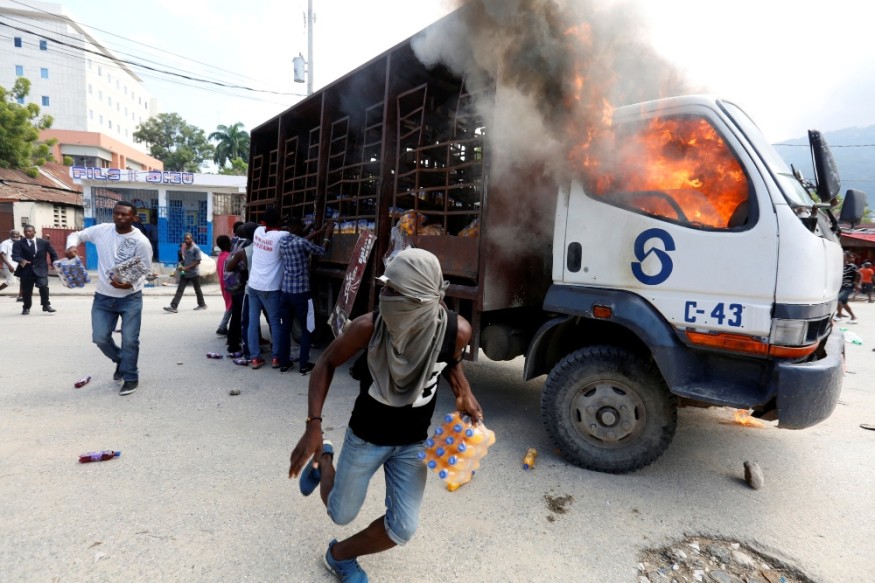Haiti Suffers from Economic Collapse After Political Protests

After two months of demonstrations to demand the resignation of Haiti President Jovenel Moïse, hundreds of thousands of people in Haiti are now suffering from economic collapse as incomes are squeezed, businesses are shuttered and transportation of basic goods is disrupted, according to an article by Associate Press published in Latino Rebels.
For Haitian economist Camille Chalmers, the situation is unsustainable as the country is nearing a total crash.
"A lot of crises came together," said Chalmers. "Not only the economic one, but the political and fiscal ones."
Before the new round of protests organized by opposition leaders and supporters angry over corruption, spiraling inflation and dwindling supplies, including fuel began in mid-September, Haiti's economy was already fragile.
According to the United Nations World Food Program's recent survey, one in three Haitians, or 3.7 million people, need urgent food assistance and one million are experiencing severe hunger due to factors such as the rising prices, the weakening local currency, and a drop in agricultural production due partly to the disruption of recent protests. The program is currently trying to get emergency food assistance to 700,000 people.
Chalmers said Haiti's currency, the gourde, has declined 60 percent against the dollar and inflation recently reached 20 percent, In the last two years. The rising cost of food has crucially affected the country of nearly 11 million people. Sixty percent its population make less than $2 a day while 25 percent earn less than $1 a day.
Even a 50-kilogram, or 110-pound, bag of rice costs more than double its price in the local currency, according to store owner Marcelin Saingiles. Saingiles sells everything from cold drinks to cookies to used tools in Port-au-Prince.
A growing number of families across Haiti can't even afford to buy their daily needs since the protests began as barricades prevented the flow of goods between the capital and the rest of the country. This affected not only those who live in protest-concentrated areas but also those in Haiti's rural areas.
Although some residents find ways to avoid the protests in Port-au-Prince like Wadlande Pierre, 23, who temporarily moved to the rural town of Les Cayes, they had to move back to the capital due to the scarcity of food, gas, power and water.
"There is no access to basic items that you need," she said.
Most vendors, like Vanlancia Julien, Pierre's aunt, were also immensely affected by the protests because she could not go out on the street to sell. Compared last year, she is now making only a third of what she used to earn before the protests started and even though streets have reopened.
"All the melon, avocado, mango, pineapple, bananas, all of them spoiled," she said.
She added, since people don't go out to work, there also less people moving around to buy her products.
Among the industries affected were tourism and hospitality. Businesses Best Western Premier hotel permanently closed and laid off dozens of its employees.
If the political instability continues, economic recovery will be slow, warned Chalmers. She added that this is the worst situation Haiti has ever faced throughout history.
Subscribe to Latin Post!
Sign up for our free newsletter for the Latest coverage!
















